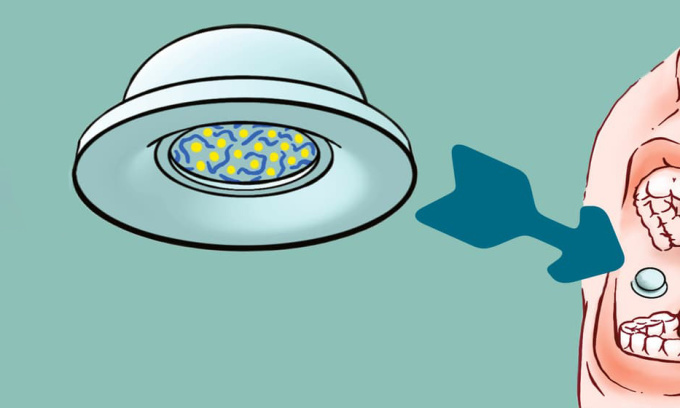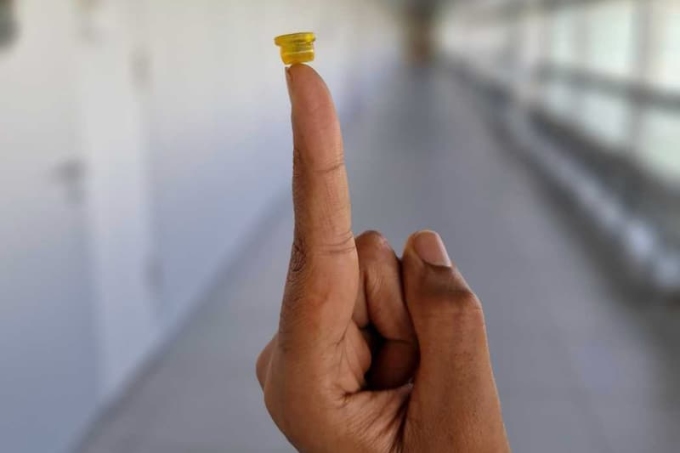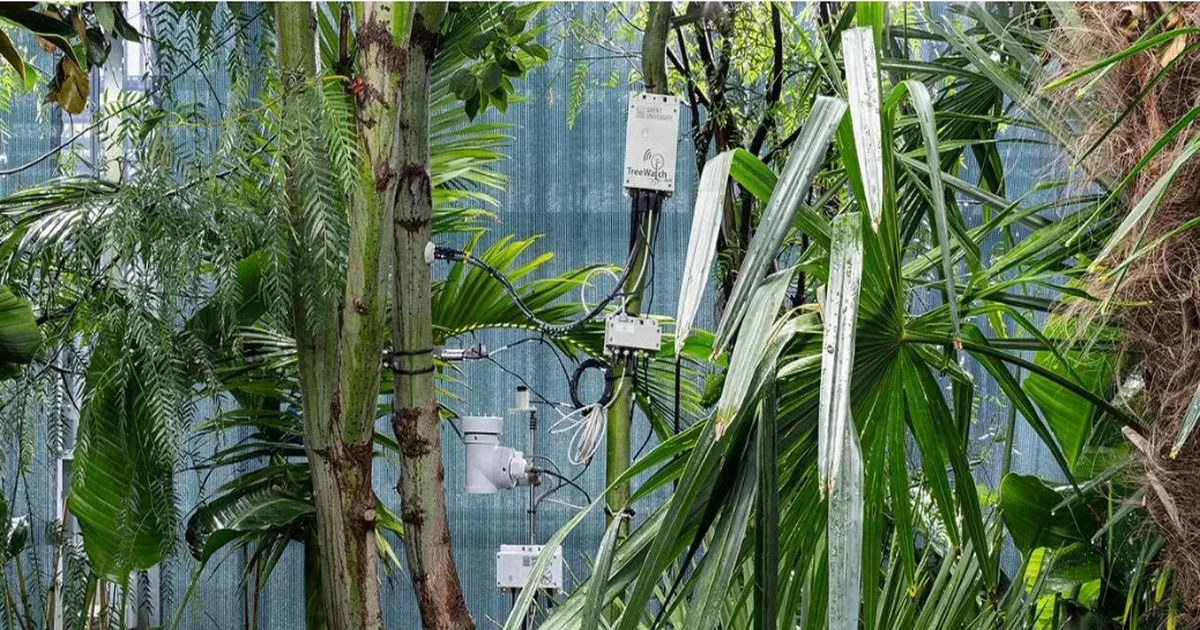Switzerland A team of scientists from the ETH Zurich research institute has developed a tiny suction cup that fits inside the cheek to deliver drugs into the bloodstream within minutes.

The suction cup containing the medicine temporarily sticks to the inner lining of the cheek. Photo: Luo Z
Some drugs can only be given by injection, although most people do not like to take them that way. The problem with injectable drugs is that they are made of relatively large molecules. These molecules would be broken down by the digestive system if taken orally, and they are too large to enter the bloodstream through the intestinal wall. They are also too large to pass through the mucous membranes that line the inside of the cheeks (called the buccal mucosa) and the underside of the tongue.
To address these issues, a team of scientists at the Swiss research institute ETH Zurich developed a tiny suction cup inspired by an octopus, New Atlas reported on September 29. The device, which is 10 mm wide and 6 mm thick, is filled with the aforementioned injectable drugs and then adheres to the lining of the cheek by simply pressing it into place with two fingers. The cup stretches the underlying mucous membrane, making it more permeable.
To further increase permeability, scientists added a naturally occurring chemical to the drug that temporarily loosens the membrane's cellular network. As a result, the drug is transported through the cheek lining and into the bloodstream within minutes.
In tests with dogs (without harm), the suction cup successfully delivered the drug into the bloodstream. The empty cups were also tested on 40 people, most of whom said they preferred the method to injections. The cups remained in the volunteers' cheeks for about half an hour without causing any discomfort.

The suction cup is 10mm wide and 6mm thick. Photo: Transire Bio
“We have a prototype and have patented this technology. Our next step is to manufacture the suction cup in a way that meets current pharmaceutical regulations,” says Nevena Paunović, an expert at ETH who led the research together with David Klein Cerrejon.
The suction cup is being commercialized by the company Transire Bio. Research on the device was published in the journal Science Translational Medicine.
Thu Thao (According to New Atlas )
Source link




![[Photo] "Beauties" participate in the parade rehearsal at Bien Hoa airport](https://vstatic.vietnam.vn/vietnam/resource/IMAGE/2025/4/11/155502af3384431e918de0e2e585d13a)


![[Photo] Looking back at the impressive moments of the Vietnamese rescue team in Myanmar](https://vstatic.vietnam.vn/vietnam/resource/IMAGE/2025/4/11/5623ca902a934e19b604c718265249d0)


























![[Photo] Summary of parade practice in preparation for the April 30th celebration](https://vstatic.vietnam.vn/vietnam/resource/IMAGE/2025/4/11/78cfee0f2cc045b387ff1a4362b5950f)


























































Comment (0)